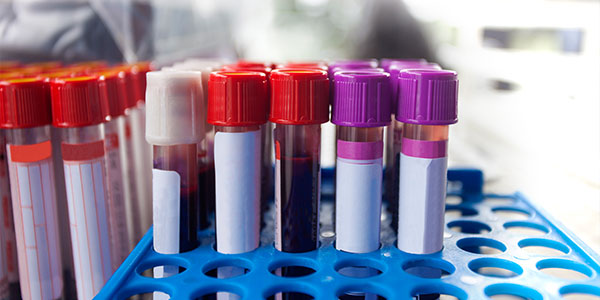Your doctor may suggest a liver function panel and other blood tests that measure liver function and damage if you have liver disease symptoms, have recently been exposed to a hepatitis virus or if you’re taking medicines that could cause liver damage.

The liver function test panel and other blood tests check how well your liver is working by measuring blood (serum) levels of certain proteins, enzymes and clotting factors, including:
- Albumin — A protein made mainly in the liver, albumin helps keep blood from leaking out of blood vessels, carries medicines and other substances through the blood and assists tissue growth and healing. Measuring albumin helps determine if your liver (and kidneys) are working well and may help predict the course of certain liver diseases.
- Alkaline Phosphatase (ALP) — This enzyme is made mostly in the liver and bones; damaged liver cells cause high ALP levels. A further test, called an alkaline phosphatase isoenzymes test, may determine whether the increase is from the liver or bones.
- Alpha-fetoprotein (AFP) — Typically used to screen for birth defects, this blood test measures AFP, a protein made by the liver. In men, nonpregnant women and children, high AFP levels may indicate certain cancers, including liver cancer.
- Aspartate Aminotransferase (AST) — This enzyme is normally found in the liver, red blood cells, heart, muscles, pancreas and kidneys. Low levels are normal; when the liver is diseased or damaged, it releases additional AST into the bloodstream.
- Bilirubin — Your body makes bilirubin, a brownish yellow substance found in bile, when the liver breaks down old red blood cells; it’s excreted through the stool. When bilirubin levels are high, your skin and the whites of your eyes may turn yellow (jaundice) and it may indicate compromised liver function or liver disease, such as hepatitis or cirrhosis.
- Gamma Glutamyl Transpeptidase (GGT) — This enzyme helps check the difference between bone ALP and liver ALP. High GGT levels indicate liver damage (but not bone disease); causes include alcohol use, blocked bile ducts, and the use of certain medicines, such as phenytoin and phenobarbital.
- Prothrombin Time (PT) — This blood test measures how long it takes blood to clot and if five different blood clotting factors (prothrombins) made by the liver are present and working correctly.









